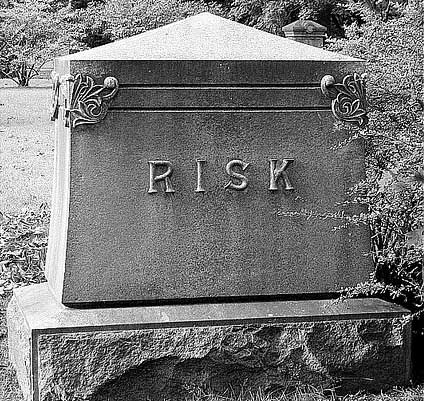
Over the last 16 months I’ve spoken to 248 financial advisors about understanding their clients’ risk tolerance. Most see the importance of this task but occasionally you will find a skeptic. Someone who doubts the process will yield anything valuable. Below I share the most common quotes I hear from advisors.
“A person’s risk tolerance is largely irrelevant to the investing process. We invest on client’s needs and goals.”
We agree that investing should by needs driven. However, we don’t think a person’s risk tolerance is largely irrelevant. Obviously we have our biases but let’s step back for a second. Understanding a client’s risk tolerance is not just about you. It’s also about a client understanding themselves and being better educated about risk. A client who is better educated about risk and return is more likely to stay the course. Less likely to want to buy at the top and sell at the bottom. For one this makes a client easier to manage. Additionally, understanding a client’s risk tolerance can tell you how many bumps in the road they can withstand. It’s all well and good to know a client needs a 8% annual return to meet their goals but if the volatility required to get them there sees them selling up then the are in serious trouble and so are you. Constructing the right financial plan is not just about the destination but the journey.
“A client’s risk tolerance changes depending on life events and market conditions so any measurement quickly becomes obsolete.”
We agree that a person’s risk tolerance can change, though it’s largely a fixed psychological construct. Major life events can see a shift but it doesn’t happen quickly and often. At Pocket Risk we usually recommend our customers test their client’s once a year. Recently there has been a body of work that says we need to distinguish a client’s risk perception from their risk tolerance. It’s something we are investigating at Pocket Risk and hope to write more about in the future. The argument goes that a person’s risk tolerance barely changes but their perception of risk fluctuates. So, if the market is doing well they think risk is low but when it is performing poorly the risk is high.
“I have a face to face discussion process that works well. Why do I need a questionnaire?”
Frankly, you don’t HAVE to have to use a questionnaire it just makes the process a whole lot easier. This is because it provides a consistent, objective and documentable measure of risk tolerance it helps standardize the approach across your firm and helps meet your compliance needs.
If you have any thoughts or comments on this I’d love to hear them.
